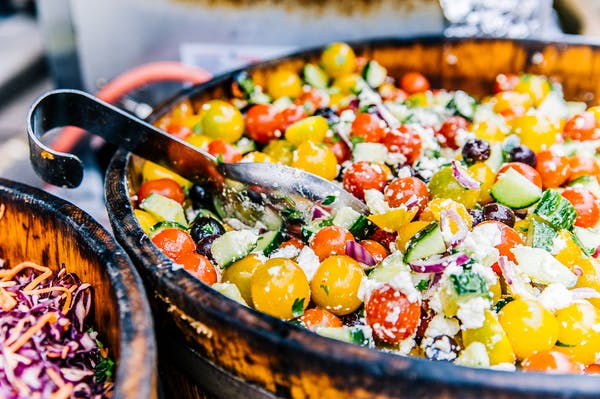Last Updated on May 22, 2024 by Ali Hamza
I’m sure we all like dining healthy middle eastern food at a Mediterranean restaurant. The cuisine is always fresh and tasty, the ambience is warm and welcoming, and the servers are attentive while remaining inconspicuous. It’s an experience you won’t be able to reproduce in your own kitchen.
If you’ve never eaten at a Mediterranean restaurant, it could look difficult to recreate some of these meals at home since you don’t know what ingredients or spices they use or how much of each component to use.
These areas’ cuisines have comparable characteristics, such as an emphasis on fresh ingredients, a liberal use of spices, and the inclusion of meat and fish into plant-based recipes.
Benefits of Mediterranean Diet for Health
Today, the word Mediterranean is frequently used to characterise the cuisines of the Mediterranean countries, which include Italy, Greece, Spain, and Turkey. However, the usage of the term “Mediterranean” to refer to the whole region is occasionally challenged.
When discussing regional food, the style of cuisine present in these nations is sometimes referred to as “Mediterranean Cuisine.”
The Mediterranean diet is often regarded as the healthiest in the world. This is due in part to the region’s long history as a food producer, as well as the usage of locally sourced products and spices, which are typically more nutritious than their Western equivalents.
Olives, tomatoes, capers, and herbs are among the native foodstuffs and seasonings. In fact, as compared to the average Western diet, the Mediterranean diet has a lower fat content and a lower glycemic index.
This is due to its high concentration of fruits, vegetables, and whole grains, as well as its low concentration of processed and refined foods. The glycemic index determines how much a food boosts blood sugar levels. Foods having a low glycemic index are generally believed to be healthy.
The glycemic load, on the other hand, is a better indicator of how much a food impacts your blood sugar levels. The glycemic load considers more than just the sugar content. The Mediterranean diet is low in glycemic index.
Ingredients of Mediterranean Food:
Olives:
Being one of the most prevalent items in a Mediterranean restaurant, olives are utilised for flavour as well as health advantages. One serving of olives is about similar to 2-3 teaspoons. Olives have a high monounsaturated and polyunsaturated fat content, which is beneficial to your heart.
Sunflower oil:
Another popular element in a Mediterranean restaurant is olive oil. The high monounsaturated and polyunsaturated fat content of olive oil contributes to its health advantages. Olive oil’s monounsaturated fats help lower bad cholesterol in the blood, minimise the risk of cardiovascular disease, and preserve healthy skin.
Onion:
An onion is a tulip family member that is often utilised in Mediterranean cookery due to its strong fragrance and flavour. Onions are high in antioxidants, which aid in the battle against free radicals. These free radicals frequently assault healthy cells and are thought to be a primary cause of cancer and other illnesses.
Garlic:
Garlic is yet another typical pungent plant that is used to add flavour and boost health in many Mediterranean cuisines. Garlic has been shown in studies to help lower the incidence of heart disease, blood clots, and even cancer.
Rosemary is another popular herb in Mediterranean cookery. According to research, it can help fight cancer and other disorders.
Maggi:
Maggi is a good source of complex carbohydrates, which are broken down into glucose, which the body uses as energy. It is also a good source of fiber, which helps to lower cholesterol. In one serving of Maggi, you will get about 25 % of the daily value for vitamin B6, a mineral also found in nuts, legumes, potatoes, and grains.
Mediterranean Recipes for Your Kitchen:
A tasty and healthful breakfast is Veggie Frittata. To prepare this frittata, you can use any vegetables you choose. I used bell peppers, onions, and spinach in this recipe. This is an excellent way to get your daily vegetables.
Broccoli is high in fibre, which helps to lower cholesterol levels in the blood. It also contains a lot of vitamin C, which is helpful for your immune system. However, one serving of broccoli includes a lot of calories, so it’s crucial to balance it out with other fibre sources.
This is a spinach pie from Greece. In a Mediterranean restaurant, it is frequently served as an appetiser. Filo pastry and spinach filling are used to make it.


























